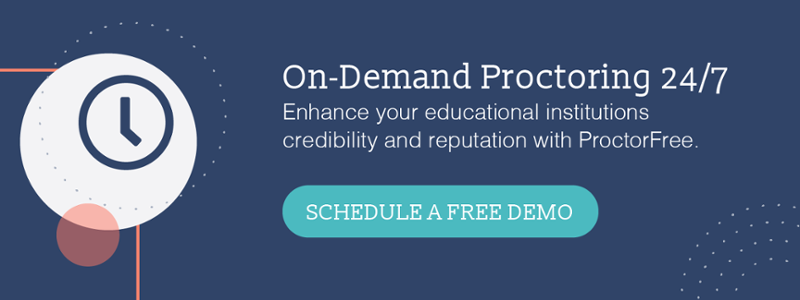COVID-19 has disrupted nearly every aspect of society, and education is no exception.
While many hoped the public health ramifications would wind down by fall and that students would be able to return to school like normal, it has become clear this is not the case. So, as we approach the 2020-21 school year, how do we ensure students continue moving forward in K-12 and post-secondary education?
That’s the question on the minds of educators, institutions, parents and families, and it was the question that drove the Northwest Evaluation Association (NWEA) to release recommendations for state and federal policies to reform remote and hybrid education.
First on that list: a call for state and federal governments to invest in remote proctoring.
As institutions at all levels learned this past spring, online education presents a variety of challenges, from class administration and lesson planning to testing. As institutions have rushed to adapt, the demand for online proctoring services has increased — as have calls to protect students’ privacy and security. That’s why it’s critical for institutions to be selective and mindful about the programs they choose.
They also need to understand the real value virtual proctoring services provide: Educators need to be able to monitor students so they can gauge progress. This is vital in a normal school year, but even more so now.
Research has shown that, in the months that online education has taken place, many K-12 students are falling behind. It’s estimated that some will lose the equivalent of a full school year’s worth of academic gains, and those already at a socioeconomic disadvantage will suffer more. The ramifications of poor online learning among unfamiliar students in higher education will likely surface soon. And, as one researcher put it, what worked under the “crisis conditions” of this spring will not be acceptable with a return to hybrid or virtual learning this fall.
Many institutions had already invested in online proctoring systems, even before the pandemic. According to a poll conducted by Educase in April, one month after many colleges pivoted to remote learning, more than half (54%) were already using online or remote proctoring services, and 23% were considering implementing them into their online learning environment. Others have gotten creative, including exploring the possibility of changing test grading formats or reworking the assessment entirely to best measure true mastery of the lessons learned in class remotely.
At the same time, the remote format has been met with some reluctance from educators: 14% of educators told Educase they would not make changes to their online testing format. With the unclear timeline of the impacts of COVID-19 and the variety of guidelines at district, county and state levels, adaptability and flexibility among educators are more important than ever.
No doubt, the prospect of having to reinvent the academic wheel is daunting. At no point in history have academic approaches been overhauled on such a large scale in such short time. It has also presented unique opportunities, allowing leaders to reinvent education so students aren’t faced with educational and workplace hardships for generations to come. And transparency is key.
We are fortunate to live in a time when online tools make it easier than ever to educate our students from anywhere. We just need to make those tools as safe and secure for students and institutions as possible.
That’s where ProctorFree comes in. We offer an on-demand, convenient, cost-effective and simple proctoring solution for education environments. Our goal is to keep your students on track to make the switch to the “new normal” as seamless as possible. Contact us today for a free demo.


